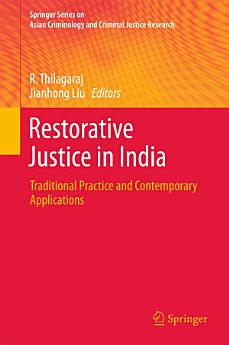Restorative Justice in India: Traditional Practice and Contemporary Applications
About this ebook
India has a rich tradition of restorative justice, and this work introduces both the traditional basis and contemporary practices of this justice system in India, in a comprehensive and systematic way.
The contributions to this work cover three main areas:
I. The Tradition of Restorative Justice in IndiaII. The Development of Restorative Justice inIndia
III. Restorative Justice Practices in India
The third part – “Practices” covers special topics: including Restorative Justice and the Court, Restorative Justice and Incarceration, Restorative Justice and Juveniles, and Restorative Justice and Woman.
The book covers the full range of the issues of restorative justice in India and will be a highly valuable resource book for researchers and upper level graduate students interested in alternative justice models in general, comparative criminology, and criminal justice in India specifically.
“A landmark volume in the history of restorative justice and criminology in India. Many outstanding scholars in this collection outline the Indian experience of restorative justice from which the world has much to learn.”
John BraithwaiteAustralian National University
About the author
Professor R. Thilagaraj was former Chair and Professor in Criminology, Department of Criminology, University of Madras. Presently Director (Academic), Center of Excellence in Digital Forensics, Chennai and Chairman, Indian Society of Criminology. Recipient of ISC - Kumarappa Reckless Award and ISC - Prof. Sushil Chandra and Haikerwal Award for Senior Social Scientist.
Jianhong Liu is Professor at the University of Macau. He is the Winner of 2016 American Society of Criminology’s Freda Adler Distinguished Scholar Award. He is the Founding President of Asian Criminological Society, the President of Scientific Commission of International Society for Criminology, and the editor in chief of Asian Journal of Criminology. He is an author of more than 100 research articles and author or editor of 29 books.






